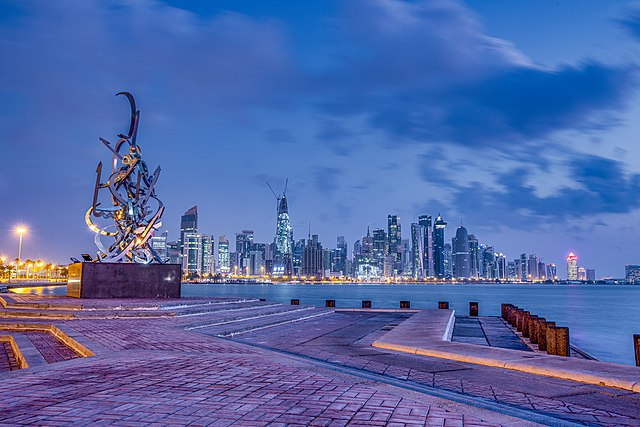KABUL (Pajhwok): Some analysts on Sunday praised the Islamic Emirate of Afghanistan (IEA)’s decision not to participate in the UN-sponsored two-day meeting in Doha, but others said it was a good chance for the IEA to declare its stance and present demands to the world.
The UN-hosted meeting on Afghanistan began today in Doha without the presence of IEA delegates.
US special envoy for Afghanistan Tomas West is representing the US in this meeting while special envoy for women and human rights of Afghanistan Rina Amiri and Russia’s special envoy Zamir Kaboluv are also participating in the meeting along with representatives of 18 countries including China, Iran, India, Japan, Tajikistan, France, Germany and the European Union (EU).
The Ministry of Foreign Affairs of Afghanistan in a statement yesterday in this regard said it had made it clear to the UN that the Islamic Emirate would participate in the meeting as the solo official representative of Afghanistan.
“if there exists an opportunity to hold frank talks between the Afghan delegation and the UN about all issues on a senior level, then participation would be beneficial. Else, ineffective participation due to non-progress in this area is deemed unbeneficial.”
Mixed reactions
Journalist Sami Yousufzai wrote on his X page: “The absence of the Islamic Emirate in international talks about Afghanistan in Qatar would have to more disappointing results. UN officials looked eager about the participation of the Taliban in this meeting. The Taliban could send a lower level delegation to the conference instead.”
He said the Taliban were a force and reality and skipping such meetings due to the presence of some women was not good. The Taliban had the chance to clarify their stance and share their demands with the world, he added.
Electoral complaints commission head in the previous government Abdul Sattar Saadat wrote the Doha-meeting was not the last opportunity to exaggerate its importance, “Painting this opportunity worthless shows the lack of political analysis of the situation of the country”.
Saadat said: “It is a big problem that the international community is still repeating its previous vigor, this is a “political ignorance”. It is an easy and worthless way of “non-diplomacy”.
Analyst of international issues Wahid Faqiri wrote: “The current decision of the Islamic Emirate would further isolate them, it will strengthen the argument of their opponents who say interaction with the Taliban is futile and useless.”
He said the decision would lead to further reduction in aid from western countries with Afghanistan and introduce the Taliban as stubborn.
Political affairs expert Qazi Najibullah Jami wrote that Kabul’s reasoning about non-participation in the Doha meeting was logical and the right position against the endless scenarios.
He said: “The caretaker government is the reality of Afghanistan and it is the only responsible side of this country, if the world really wants a solution to the issue of Afghanistan, it should get involved in depth and meaningful talks with Kabul.”
Writer Majid Qarar wrote: “The Qatar talks are launched to secure the interests of the US, they simply use Afghans for this purpose. Unfortunately the US interests are in conflict with the interests of Afghans. Therefore, cooperating with Qatar talks is indeed deepening the problem.”
Political analyst Zakir Jalali wrote the international community’s insist on the presence of the Islamic Emirate meant it had value for the organizers.
“The Emirate’s invitation to Qatar proved no one can ignore the Islamic Emirate in Afghanistan-related discussions”.
Jalali wrote: “Emirate had its own vision about the participation of its delegation in Doha talks and had some questions to ask from the UN representatives and other participants, there was no enough clarification about the agenda, topics and structure of the meeting, such participation Is considered incalculable. The current Afghanistan is not comparable with the Afghanistan of past two decades, Afghanistan’s values, sovereignty and independence in decisions are not negotiable with any party including the UN.”
He said the Doha meeting was neither first nor last, but the Islamic Emirate’s stance became clear to the UN and other influential parties.
Journalist and reporter Dr. Haidar wrote: “The outcome of such meeting can never be positive for Afghanistan because the country’s rulers are unaware about its agenda.”
He said the Afghans had realized in the case of Palestine how much the UN was sovereign.
About the Ministry of Foreign Affairs’ statement, Afghan ambassador in Beijing Bilal Karimi said: “This historical declaration is actually a tsunami for the evil plots of our tyrants. This declaration shows the knowledge of wise leadership about the depth of issues.”
Deputy Information and Culture Minister Muhajir Farahi wrote the Islamic Emirate made all decision as an independent state, considering religious, national and the country’s interests.
aw/ma
Views: 80
